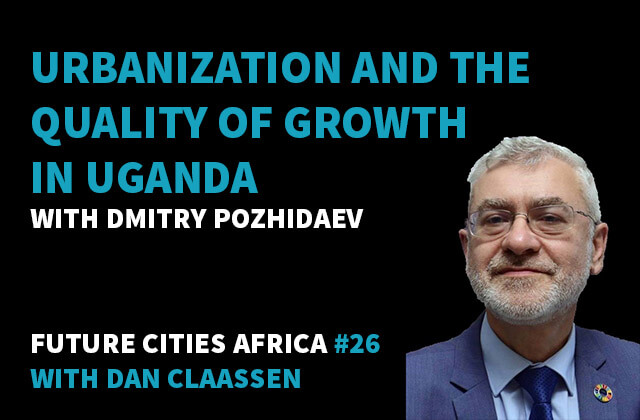Listen to Audio
Preparing Western Cape Businesses for CBAM Challenges and Opportunities: Episode 1
The Carbon Border Adjustment Mechanism (CBAM) is a key policy tool that forms part of the European Green Deal (EGD) to reduce net GHG emissions across Europe and abroad. In this three-part series, we will unpack its implications on business, building business resilience, key opportunities, where to find support, and much more.
Stay Connected
Episode Overview:
The Carbon Border Adjustment Mechanism (CBAM) is a key policy tool that forms part of the European Green Deal (EGD) to reduce net GHG emissions across Europe and abroad. Within this context, CBAM can be defined as a carbon border tax on embedded GHG emissions of carbon-intensive products imported into the EU, also from SA. It can be viewed as an opportunity to drive local businesses towards greater economic resilience and green innovation. In this series of episodes, we will unpack its implications on business, building business resilience, key opportunities, where to find support, and much more.
This episode is part of the "Preparing Western Cape businesses for CBAM challenges and opportunities", a three-part series Supported by the Western Cape Government Department of Environmental Affairs and Development Planning, produced in partnership with GreenCape, featuring Gaylor Montmasson-Clair, Senior Economist at Trade & Industrial Policy Strategies.
Episode Summary:
- 00:00:00 In this section the Carbon Border Adjustment Mechanism (CBAM) is defined as a key policy tool under the European Green Deal aimed at reducing greenhouse gas emissions in Europe and abroad. CBAM can be viewed as a carbon border tax on embedded greenhouse gas emissions of carbon-intensive products imported into the EU, including from South Africa. The primary goal of CBAM is to level the playing field for EU industries while addressing carbon leakage. Essentially, it is a carbon tax at the EU border, meaning that any good covered by CBAM that is exported from countries, including South Africa, that haven't been subjected to a carbon tax or carbon price in their country of origin would be taxed at the border. The EU is the pioneer in implementing such a measure, but many other countries, such as the UK, Canada, US, Japan, and Australia, are also looking at introducing their own CBAM. However, it is important to note that CBAM is just one of the many measures the European Union is implementing that has external impacts, and the implications for many countries in the global South, particularly on the African continent, could be even more significant.
- 00:05:00 In this section, Gaylor Montmasson-Clair discusses the broader context of the Carbon Border Adjustment Mechanism (CBAM) and its implications for businesses in the Western Cape region. The Farm to Fork strategy and the shift to new energy vehicles are among the regulations impacting various sectors of the economy. The CBAM development is taking place in a competitive global environment where countries are implementing aggressive green industrial policies and securing access to critical minerals for producing green techs. He emphasises the importance of understanding CBAM within this broader ecosystem. The CBAM is currently in a transition period until the end of 2025, during which companies can adapt, and there is no tax liability. However, industries like iron and steel and aluminium, which are heavily energy-intensive and primarily impacted in South Africa, face challenges in decarbonisation and access to the European market. Gaylor highlights the need for strategies to respond and adapt to these challenges.
- 00:10:00 In this section, Gaylor discusses how businesses in South Africa, particularly those in the energy and water sectors in the Western Cape, can build resilience against the potential financial and regulatory impacts of the Carbon Border Adjustment Mechanism (CBAM) and leverage this transition to gain a competitive advantage. The first step for companies is to establish the Monitoring, Reporting, and Verification (MRV) system to prove the carbon intensity of their products and decarbonise their production processes through energy efficiency and low-carbon power supply, ideally from renewable sources. While energy and water industries are not directly targeted by CBAM at the moment, they should start preparing now to be in the best position to reap the benefits when new sectors are added in the future. The ultimate goal is for businesses to effectively decarbonise, as this will provide preferential access to the European Union Market.
- 00:15:00 In this section of the video, Gaylor discusses how local and national governments in South Africa can support businesses in adapting to the Carbon Border Adjustment Mechanism (CBAM). The first step is to help companies establish monitoring, reporting, and verification systems, aligning them with South Africa's reporting requirements for carbon tax and Greenhouse gas emission inventory. The government can also negotiate for more time for adaptation and push back against certain measures. A green industrial policy package is essential to help companies decarbonise, introduce new production processes, and procure renewable energy. Gaylor emphasises the importance of this support, as it reduces vulnerability, increases resilience, and ultimately enhances the competitiveness of South African businesses. If, in 2026, companies are liable to pay CBAM at the EU border, it is the government's duty to ensure that any profits paid to the EU are retained in South Africa.
- 00:20:00 In this section, Gaylor discusses the economic and environmental benefits companies can expect from aligning with CBAM (Carbon Border Adjustment Mechanism) regulations in the long term. He emphasises that while there may be short-term challenges and costs associated with the transition, carbonisation is the only way for businesses to remain competitive and access markets and finance in the long run. Companies that take steps to decarbonise will save on costs, be more efficient, and ultimately more competitive. From a country perspective, this shift towards a carbonised economy can lead to positive outcomes such as increased employment, investment, better health, and a more resilient and sustainable economy. He also emphasises the importance of supporting companies during the transition and maximising benefits in the long run.







